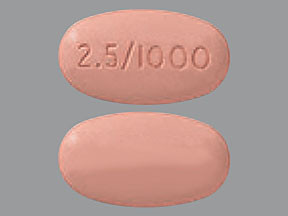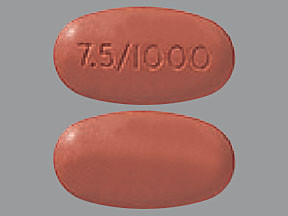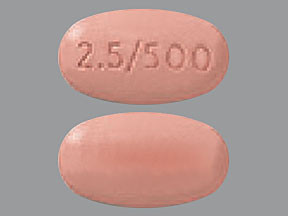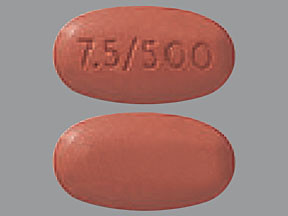ERTUGLIFLOZIN/METFORMIN - ORAL
PHONETIC PRONUNCIATION: (ER-too-gli-FLOE-zin/met-FOR-min)
COMMON BRAND NAME(S): Segluromet
GENERIC NAME(S): ertugliflozin pidolate/metformin HCl
Uses
USES: This medication is a combination of 2 drugs: ertugliflozin and metformin. It is used with a proper diet and exercise program to control high blood sugar in people with type 2 diabetes. Controlling high blood sugar helps prevent kidney damage, blindness, nerve problems, loss of limbs, and sexual function problems. Proper control of diabetes may also lessen your risk of a heart attack or stroke. This medication works by helping to restore your body's proper response to the insulin you naturally produce. It also increases the removal of sugar by your kidneys, decreases how much sugar is made in your liver, and decreases how much sugar your body takes in through your stomach and intestines.
How to use ERTUGLIFLOZIN/METFORMIN - ORAL
HOW TO USE: Read the Medication Guide provided by your pharmacist before you start taking this medication and each time you get a refill. If you have any questions, ask your doctor or pharmacist. Take this medication by mouth as directed by your doctor, usually 2 times a day with a meal. The dosage is based on your medical condition, response to treatment, and other medications you may be taking. Be sure to tell your doctor and pharmacist about all the products you use (including prescription drugs, nonprescription drugs, and herbal products). Take this medication regularly to get the most benefit from it. To help you remember, take it at the same times each day. Tell your doctor if your condition does not get better or if it gets worse (your blood sugar is too high or too low).
Side Effects
Precautions
Interactions
Overdose
Images

- color
- pink
- shape
- oblong
- imprint
- 2.5/1000

- color
- pink
- shape
- oblong
- imprint
- 2.5/1000

- color
- red
- shape
- oblong
- imprint
- 7.5/1000

- color
- red
- shape
- oblong
- imprint
- 7.5/1000
Reviews
Faq for ERTUGLIFLOZIN/METFORMIN - ORAL
Ertugliflozin/Metformin is an oral medication used to treat type 2 diabetes. It combines two different drugs, ertugliflozin and metformin hydrochloride, to help control blood sugar levels.
Ertugliflozin/Metformin works in two ways. Ertugliflozin helps lower blood sugar levels by increasing the amount of glucose excreted in the urine. Metformin improves the body's sensitivity to insulin, a hormone that regulates blood sugar levels.
Common side effects may include urinary tract infections, yeast infections in females, diarrhea, nausea, vomiting, abdominal pain, headache, and low blood sugar levels (hypoglycemia).
It is important to consult your healthcare provider or pharmacist for guidance on combining Ertugliflozin/Metformin with other diabetes medications. They will evaluate your specific situation and determine the best treatment plan for you.
Some precautions include avoiding Ertugliflozin/Metformin if you have severe kidney problems, a history of lactic acidosis, severe dehydration, or are allergic to any of its ingredients. It is also important to inform your healthcare provider about any other medical conditions or medications you are taking.
Ertugliflozin/Metformin is usually taken once daily with a meal or as directed by your doctor. It is essential to follow the prescribed dosage and the instructions provided by your healthcare provider.
Some individuals may experience weight loss while taking Ertugliflozin/Metformin due to its mechanism of action. However, the medication's primary purpose is to manage blood sugar levels, and weight loss can vary from person to person.
Ertugliflozin/Metformin is not recommended for use during pregnancy or breastfeeding. It is crucial to discuss alternative options with your healthcare provider to ensure the safety of both you and your baby.
If you forget to take a dose, take it as soon as you remember unless it is close to your next scheduled dose. In such cases, skip the missed dose and continue with your regular dosing schedule. Do not double the dose to make up for a missed one.
Warning
WARNING: Rarely, too much metformin can build up in the body and cause a serious (sometimes fatal) condition called lactic acidosis. Lactic acidosis is more likely if you are an older adult, if you have kidney or liver disease, dehydration, heart failure, heavy alcohol use, if you have surgery, if you have X-ray or scanning procedures that use iodinated contrast, or if you are using certain drugs. For some conditions, your doctor may tell you to stop taking this medication for a short time. Ask your doctor or pharmacist for more details. Stop taking this medication and get medical help right away if you have any symptoms of lactic acidosis, such as unusual tiredness, dizziness, severe drowsiness, chills, blue/cold skin, muscle pain, fast/difficult breathing, slow/irregular heartbeat, or stomach pain with nausea/vomiting/diarrhea.
Disclaimer
IMPORTANT: HOW TO USE THIS INFORMATION: This is a summary and does NOT have all possible information about this product. This information does not assure that this product is safe, effective, or appropriate for you. This information is not individual medical advice and does not substitute for the advice of your health care professional. Always ask your health care professional for complete information about this product and your specific health needs.


No Reviews Yet